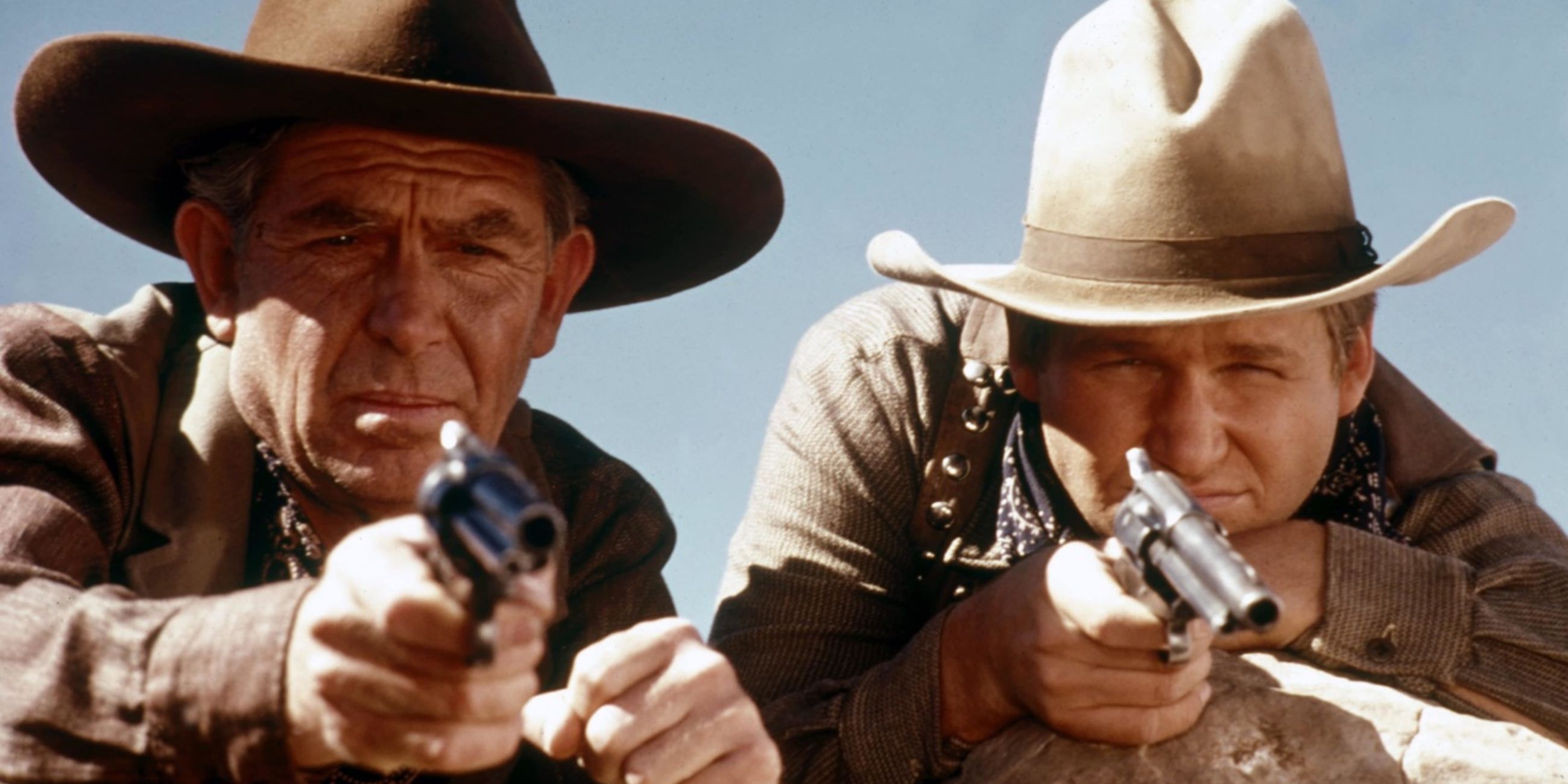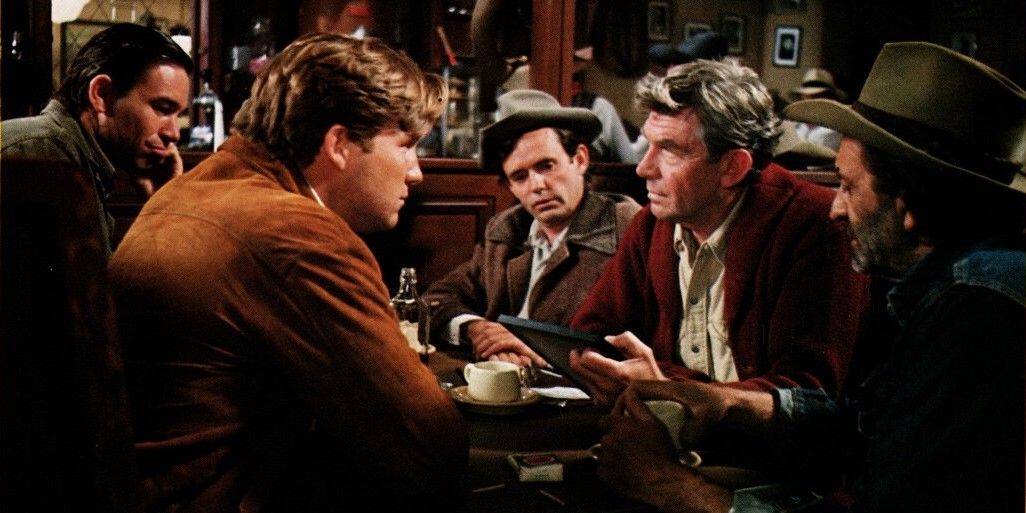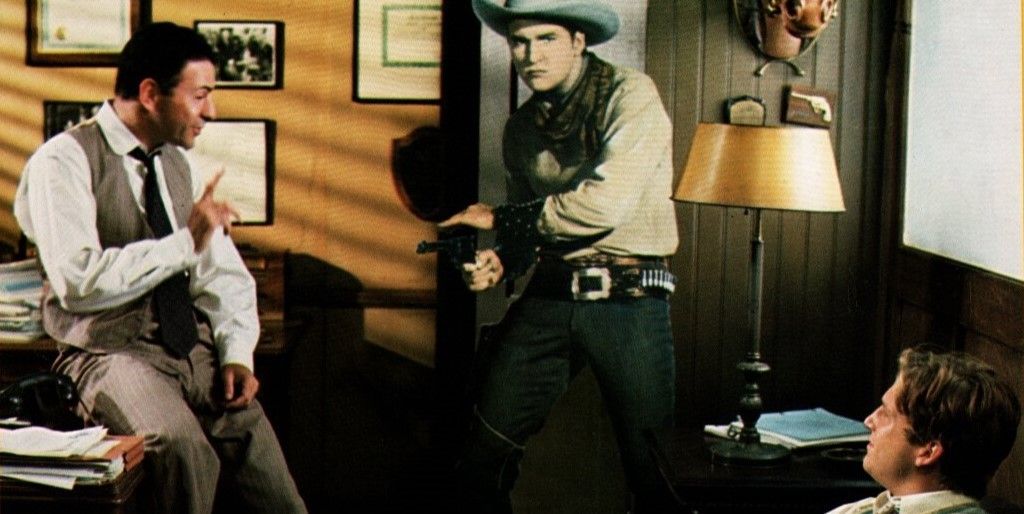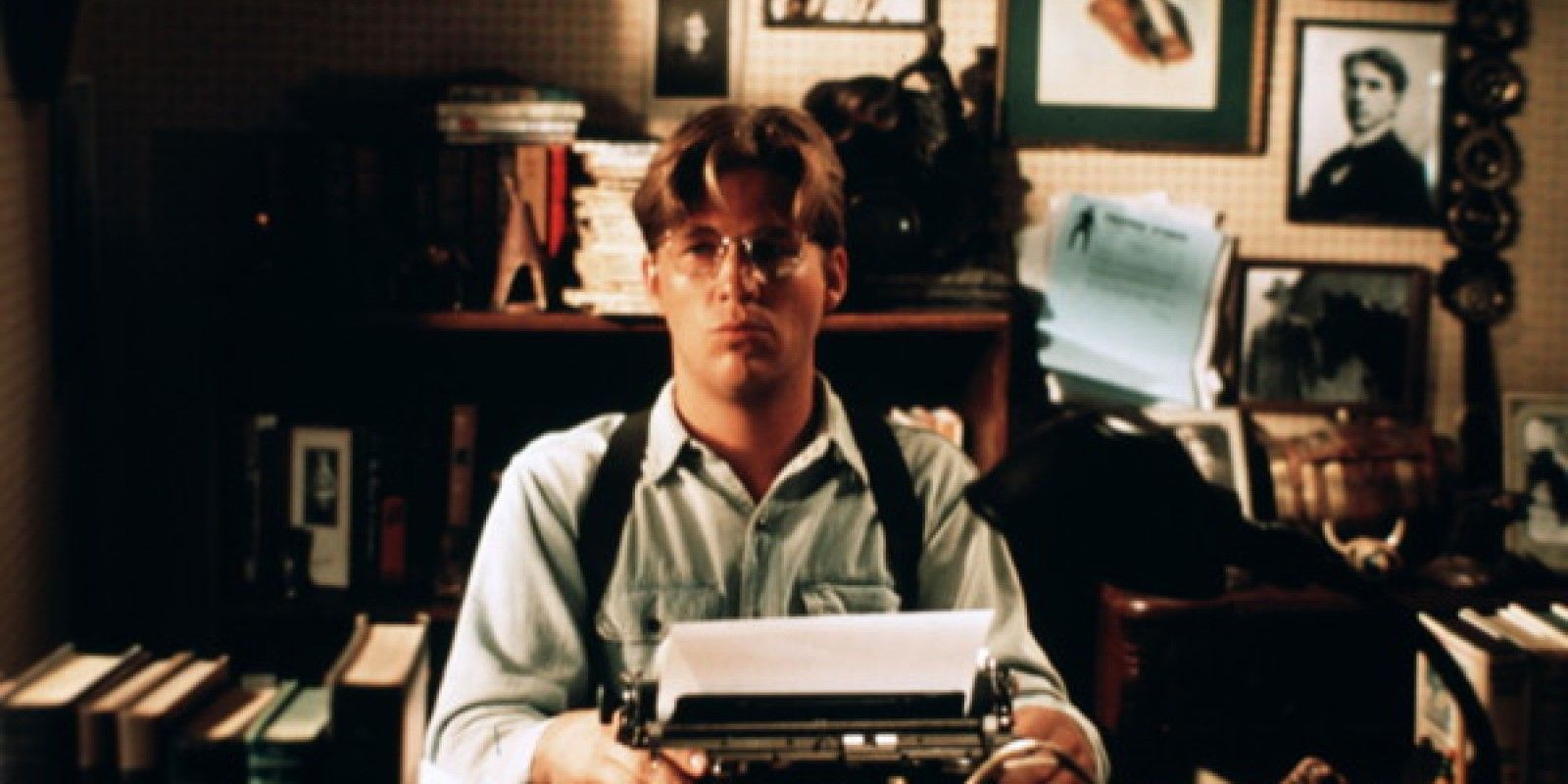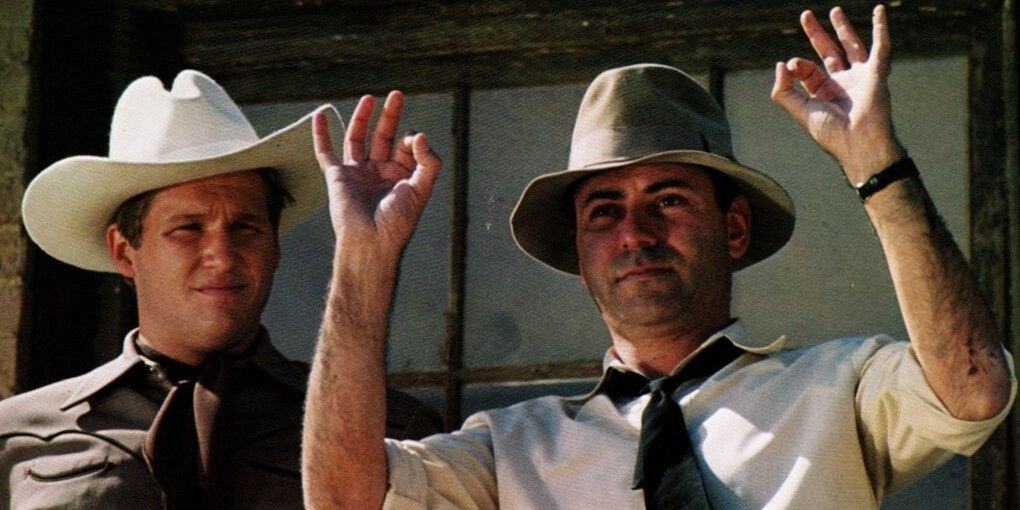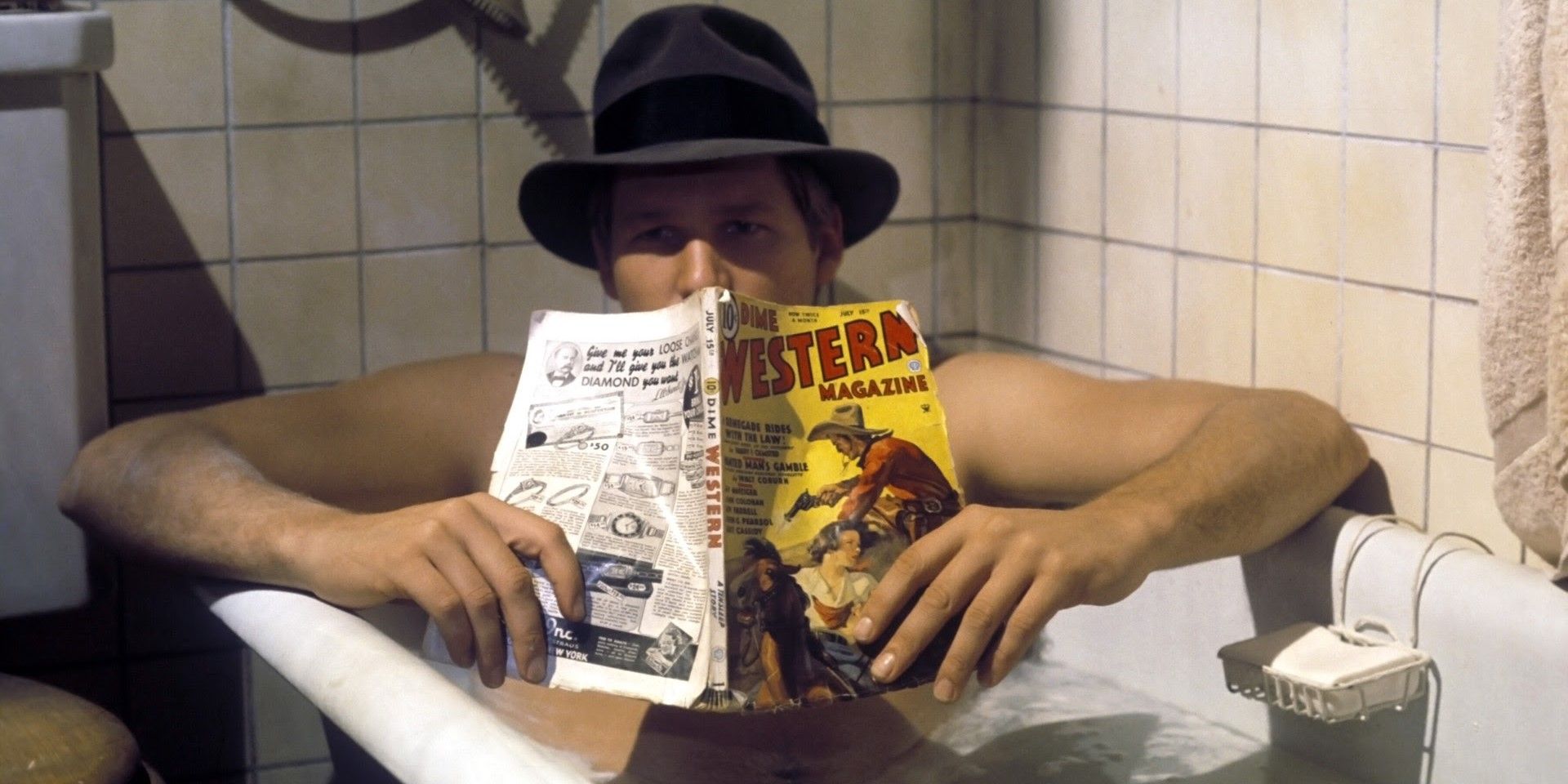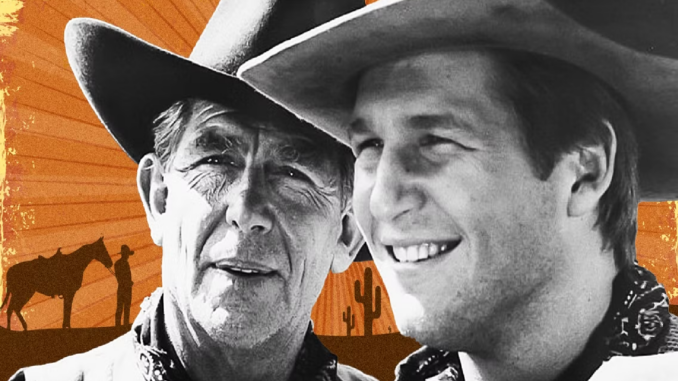
Hearts of the West is a 1975 American comedy film written by Rob Thompson, produced for MGM by Tony Bill, and directed by legendary commercial producer Howard Zieff: (“I can’t believe I ate the whole thing”). The film has been called a valentine to the early days of moviemaking and is built around the performance of then-26-year-old actor Jeff Bridges, fresh off a string of early, career-building successes like Thunderbolt and Lightfoot.
Bridges plays Lewis, a young and naive but optimistic and determined wanna-be cowboy novelist who comes west to learn to write cowboy novels. But instead of simply finding inspiration for his adventurous writing, he winds up broke and working as a stuntman in B-movie westerns. Though it did not do well on its initial release, the movie has developed a cult following over the years.
What Is ‘Hearts of the West’ About?
The opening sepia-toned screen test of central character Lewis Tater, with the off-screen voice of a frustrated director, tells us quickly that as much as he might look like Tom Mix, Lewis is not a trained actor or any kind of actor at all. In fact, Lewis, a young man from a Midwest farming family wants to be a Western writerand in pursuit of that dream, he has sent and now follows the $25 he has made harvesting crops to the Titan Writers’ Correspondence School advertised in a magazine.
But when he arrives in Titan, Nevada, the school turns out to be a post office box in a dusty whistle-stop station in the middle of an empty desert. It doesn’t take long for the hucksters (Richard Shull and Anthony James) who run the fake school get wind of the stranger in town. They promptly try to rob him, which backfires when, in a panic, Lewis escapes in their car with their ill-gotten loot. He encounters a cowboy movie production on location and hitches a ride back to Hollywood, where he signs up as a cowboy extra and learns the ropes from an old veteran named Howard (Andy Griffith), and falls for the chain-smoking, sweet but no-nonsense script girl, Miss Trout, nicknamed Trouty (Blythe Danner). Meanwhile, the angry Nevada fraudsters are on Lewis’ trail and closing in.
Big Dreams and Hard Knocks in ‘Hearts of the West’
Hearts of the West is about big dreams and the people, good and bad, who take advantage of them. It evinces a love of the romance of the early days of Hollywood movie-making against the rock scrabble hard times of the Depression. Lewis learns the hard way about the ability of dreams to manipulate, the falseness of friends, the value of money, and the dangers of jumping into a saddle from a high place without protection. But he plows forward with his righteous sense of self, his mid-Western morals, and his determination to make good.
The appeal of Hearts of the West on college campuses and midnight shows no doubt lies in its depiction of its highly identifiable story of a young man, his trials and tribulations, and his ultimate success, mostly through pluck and dreams. It is wish fulfillment for young adults, who, most likely relate to Lewis in one way or another. The addition of the wise and fatherly mentor figure, the guardian angel girlfriend, and Bridges’ easy-to-like performance further account for its staying power and cult status.
It has an authentic look and sound of the 30s, both nostalgic and threadbare. The script elements have been borrowed, or at least inspired by several sources, including Merton of the Movies and the early years of John Ford’s story in Hollywood. There are sweet and funny nods to both the Red River round-up kick-off and the Blazing Saddles campfire scene, and another one to Laurel and Hardy’s The Music Box.
‘Hearts of the West’ Is Full of Familiar Faces
Donald Pleasence, in particular, is wonderfully funny in a two-scene turn as pulp fiction publisher A. J. Neitz, who can finally turn Lewis’ dreams into reality. Alan Arkin can barely contain the rage that motivates his character as director and studio boss Burt Kessler, alternating rapidly between wild insults, profuse apologies, and desperate begging. He perfectly embodies the classic no-talent director, ultimately creating more chaos on set amidst the cacophany.
Another part of the movie’s appeal is the supporting cast, which includes lots of faces familiar to audiences of 70s television. Griffith is first among them, but also Richard Shull, Herb Edelman, Frank Cady, Dub Taylor, William Christopher, Richard Stahl, and others. Danner, as a slightly older woman, and Bridges notably make quite a likable couple. Roger Ebert called Hearts of the West , “a lovely little comedy, a movie to feel fond of.” It enjoys a 90% critics score on Rotten Tomatoes and deserves all the new looks it can get.
